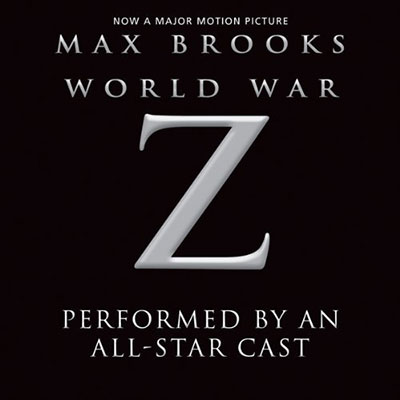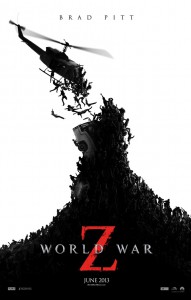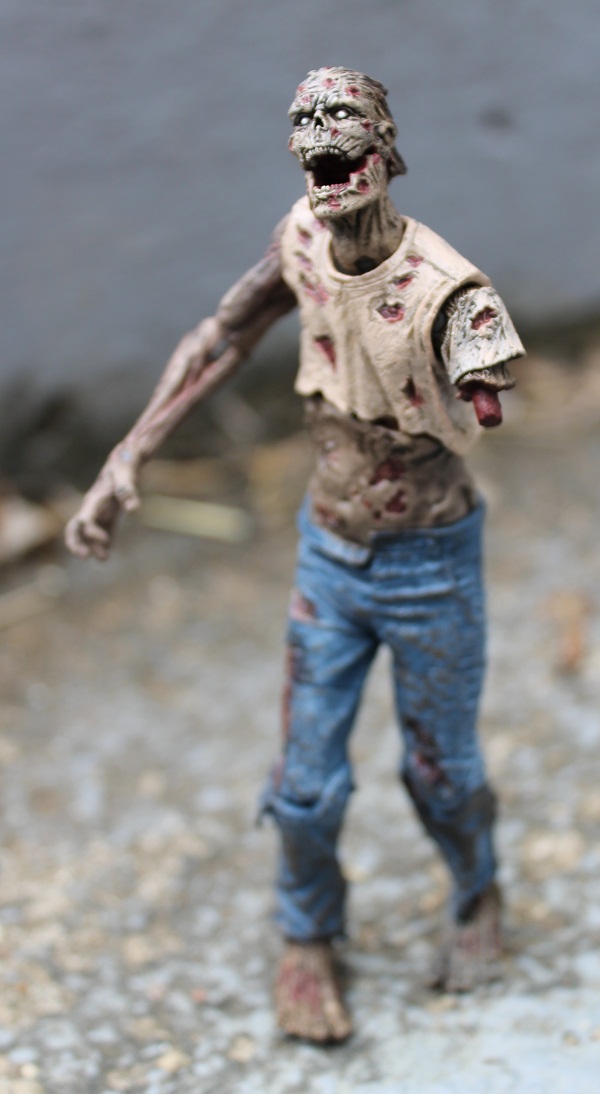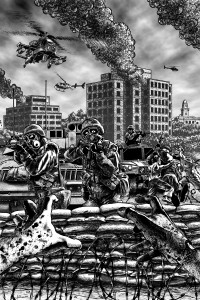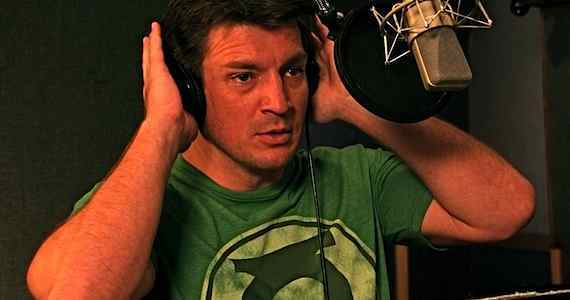“Dear fellas, I can’t believe how fast things move on the outside… The world went and got itself in a big damn hurry.”
-Brooks, “The Shawshank Redemption”
It breaks my heart, this new era of zombies. Gone are the encroaching horde, the inescapable mass of bodies that never quit, never surrender until humanity is buried under a pile of corpses. Now, everything is so fast. Zombies no longer mean anything as a group. It used to be in any zombie story that there was a clear time when the hero of the story was safe and when he was in danger. No longer. Now, audiences are force fed these feral beasts that have a whole new terror. The message is that you are safe never. Always danger around every corner, a monster you couldn’t fight even if you wanted to. And I’m stuck here wondering what the appeal is.
By now you have either watched the movie “World War Z” or you haven’t, my article isn’t going to change things for you very much. However, I think a much more noble cause would be to show you the alternative. For the glitzy special effects of the Hollywood “World War Z”, there is a much more character driven story, a tale that is so enthralling you can feel the zombies pressing in against the doors that barricade and keep you safe from the nightmares. Of course I am talking about the book, but much more importantly, I am talking about the audio book.
First, I need to talk of some of the failings of the movie “World War Z”. Right off the bat I find myself in need of a quote once more:
“The speedy zombie seems implausible to me, even within the fantastic realm it inhabits. A biological agent, I’ll buy. Some sort of super-virus? Sure, why not. But death? Death is a disability, not a superpower. It’s hard to run with a cold, let alone the most debilitating malady of them all.”
-Simon Pegg
I’m not saying this just to be snippy; it’s a dullard’s scary movie. In all the preceding zombie lore, it can be seen that these zombies are iron-willed as well as strong as iron. This isn’t the case. What is actually happening is the removal of mental barriers. When a man runs up to his limit of what he can lift, this is a biological reaction in which the body tells the mind, “Stop, before you break something.” The whole point of zombies is they don’t have that response. So instead, they push their strength past the breaking point—sometimes losing some fingers, a hand, maybe even an arm. How did that translate over to speedy zombie? It’s a travesty because it removes the vital allegory that zombies represent.
In traditional zombie lore, the lone zombie is a hapless creature. Watch it shuffle and clumsily stumble over the simplest of obstacles. This is a creature that represents little difficulty outmaneuvering. But, watch this creature persevere. The whole point of a zombie is it is singularly driven. It will not stop because it only has one function, it needs to eat. What’s worse is that eventually, in any zombie story, the survivors stop dealing with just lone zombies and start dealing with teams, and then packs, then armies, and before long it is a horde. The singular drive of that one zombie is now manifested in all of those creatures. They all want you and they will not stop until they have you.
What we got in the movie “World War Z” was a reductionist’s view of zombies. Instead of what they represented, they were abridged down to little more than claws and teeth. And from the very beginning, these things had control. The opening title cards rolled in front of news broadcasts about crazy “riots” that police were powerless to stop. All the way through there was no slowing down. It was constant high paced action. There was even a sequence where Brad Pitt’s character is on a plane ride and the flight seemed too much of a lull so the movie throws in a nuclear explosion in the distance with no explanation or even care. That’s right, Brad Pitt’s character doesn’t even radio in to report the event. Apparently, after zombies showed up, people stopped giving two craps about things like nuclear explosions. What’s tragic is the explosion was referencing something from the book but without proper context, the whole thing is moot.
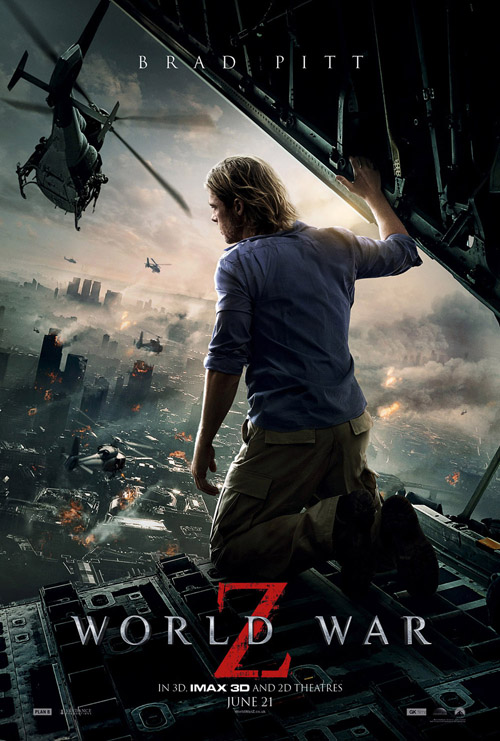
That brings us to the audio book. If you’ve already read the book, you know it’s an amazing story. But utilizing this medium it becomes more bewitching than even the most potent narcotic—no, probably not, but it’s a damn good story. Think of that friend you have, that friend who may not go on the most epic adventures or see the craziest locales, but they are your friend that can make any vacation into a life changing experience. They speak and you can’t help but hang off of every word until they finish—you don’t even interject, you just let them talk and allow the vision of the story to sweep over you. That’s what this audio book is like but instead of your boring friends, it’s a bunch of kick ass famous people.
Imagine Mark Hamill, Luke Skywalker himself, telling you the tale of battle. This is a tale of low survivability, of nasty circumstance, a battle where more died than lived. His gruff, angry words fill in the images better than any nouns or adjectives ever could. In this place, you see the death and devastation and you know what it is to feel powerless. And he’s not the only one among the cast to both be incredible and achieve an incredible performance. There is Martin Scorsese who plays a scummy CEO, there’s Henry Rollins who plays a war torn mercenary, Simon Pegg makes an appearance as a shortsighted White House official, even Nathan Fillion makes an appearance as an unfortunate Canadian soldier who first discovers these walking dead. All of these performances are so powerful, and within the context of the story, there words are more vibrant than the highest definition TV.
When I think on all the unfortunate failings of the movie compared to the audio book, my attention is drawn to pacing. In the book, this is a slow buildup. This is an event that takes years to even be recognized. Then when the dam finally breaks and the dead swarm over the living? It’s another decade before the war is won. The movie takes less than a week. Why? Why would you cut out so much valuable material? The first reported cases in third world countries, the people in power working so diligently to make the story go away, the panic that tore nations to shreds? All of it sacrificed to a fast paced, B horror movie—because that’s what the movie devolves into. It’s not even that the movie is a rancid film turd, it’s not. It’s average. It’s popcorn fodder at best. But isn’t that worse? To have good material in front of you and not fail, but to settle for mediocrity. It pulls all of the importance from zombies. There was something else Simon Pegg said:
“However (and herein lies the sublime artfulness of the slow zombie), their ineptitude actually makes them avoidable, at least for a while. If you’re careful, if you keep your wits about you, you can stave them off; even outstrip them – much as we strive to outstrip death. Drink less, cut out red meat, exercise, practice safe sex; these are our shotguns, our cricket bats, our farmhouses, our shopping malls. However, none of these things fully insulates us from the creeping dread that something so witless, so elemental may yet catch us unawares – the drunk driver, the cancer sleeping in the double helix, the legless ghoul dragging itself through the darkness towards our ankles.”
It’s not that they made a bad film; they just didn’t make a good one. Give the book a proper chance, or better yet, be enthralled by the intoxicating tale in the audio book, “World War Z”.
